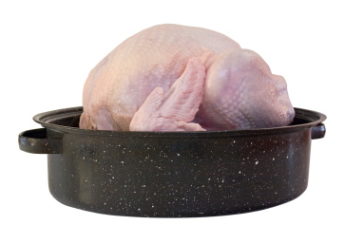Public Health is investigating an outbreak of gastroenteritis with abdominal cramping and diarrhea associated with Xi’an Noodles in Seattle.
Illnesses
 Since December 24, 2018, Public Health has learned of 3 people from a single meal party who became ill after consuming food and beverage from Xi’an Noodles in Seattle on December 21, 2018.
Since December 24, 2018, Public Health has learned of 3 people from a single meal party who became ill after consuming food and beverage from Xi’an Noodles in Seattle on December 21, 2018.
Symptoms and timing of illness onsets are suggestive of a bacterial toxin, such as Bacillus cereus or Clostridium perfringens.
The exact food or drink that caused the illness has not been identified, though this is not uncommon for outbreaks associated with a bacterial toxin.
General advice for reducing risk of contracting Bacillus cereus or Clostridium perfringens:
- Wash hands, cutting boards, and counters used for food preparation immediately after use to avoid cross-contamination of other foods.
- Food, especially meats, rice, and gravies should be cooked to a safe internal temperature, and then kept at 140°F (60°C) or warmer, or 40°F (4.4°C) or cooler.
- Leftover foods should be refrigerated as soon as possible and within 2 hours of preparation.
- It is recommended to put hot foods directly into the refrigerator. However, to allow rapid cooling, large amounts of food, such as soups, stews, and big cuts of meats, such as roasts, should be divided into small quantities for refrigeration.
- Leftovers should be reheated to at least 165°F (74°C) before serving.
- Use a food thermometer to appropriately measure food temperatures, both during cooking and cooling.
- When in doubt, throw it out. Foods that have dangerous bacteria in them may not taste, smell, or look different. Any food that has been left out too long may be dangerous to eat, even if it looks OK.
Public Health actions
Environmental Health investigators visited the restaurant on December 31, 2018. Investigators identified potential risk factors for bacterial toxin growth, including incorrect cooling of potentially hazardous foods, improper storage of foods at room temperature, and lack of thermometer use to measure food temperatures.
Investigators provided restaurant management with recommendations about safe food handling practices to reduce the risk of bacterial toxins. The facility discarded all improperly handled foods and made process changes to correct unsafe food practices at the time of the field visit. Environmental Health investigators will revisit the restaurant within 14 days to ensure compliance with proper food handling practices.
Laboratory testing
We do not have laboratory testing for the people who got sick. Bacterial toxin illnesses are typically short-lived and by the time people seek care, if they do at all, it is often too long after the suspected exposure to test.
More information about STEC
- Bacillus cereus facts, Foodsafety.gov
- Clostridium perfringens facts, Foodsafety.go


